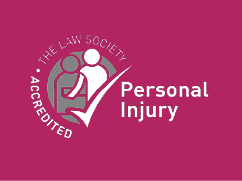Blogs
When mums are not listened to: Traumatic Births and the Postcode Lottery of Perinatal care

SONIA FU >
Senior Associate
Fri 7 June 2024
The All-Party Parliamentary Group (APPG) has recently published a report titled “Listen to Mums: Ending the Postcode Lottery on Perinatal Care” following an inquiry into the reasons for birth trauma and to help develop policy recommendations.
Sonia Fu, Senior Associate in our Medical Negligence department reflects on the report and its findings.
Having a child is meant to be a momentous occasion bringing a new life into the world by one of the most natural processes our bodies have evolved to do. The process of giving birth can be unpredictable and sometimes life threatening, but with appropriate standards of maternity services the risk of injuries in childbirth to both the mother and the baby should be significantly reduced.
Yet, some mothers in the UK continue to receive poor maternity care resulting in both physical and psychological injuries long after their birth journeys. And in some cases, these failings in maternity care also result in life-long disabling injuries to the child such as shoulder dystocia and cerebral palsy.
Mothers tend not to openly discuss their traumatic birth journeys and the effects these events have had on them because of a generally perceived social taboo. But most mothers who have been through their birth journey in the UK will have, or know someone who has, experienced traumatic births, sometimes resulting in injuries to either the mother and/or the child.
In the past decade, the Parliament has led several investigations into failings in maternity services in specific NHS trusts including the Ockenden inquiry. These investigation reports made a number of recommendations on improvements to NHS maternity care, but nearly half of maternity units in England are still being rated as either ‘inadequate’ or ‘requires improvement’ by the Care Quality Commission (CQC). These investigations into individual trusts highlighted a fragmented maternity service where the quality of care a mother can expect to receive varies across the country, effectively a Postcode Lottery the quality of maternity services.
The recent Listen to Mums Parliamentary report is the result of a national inquiry to find out directly from those who have experienced traumatic births on how these experiences have affected them and to identify common themes that can be learned from.
What were the key findings of the report?
The inquiry heard personal accounts from both people who had experienced traumatic births as well as maternity professionals. They described the stories told by parents as ‘harrowing’ and in many of the cases, the inquiry recognised that the trauma was caused by mistakes and failures made before and during labour. There were devastating accounts from women who had experienced injuries during birth causing them a lifetime of pain and bowel incontinence who are no longer able to work because of their injuries. The inquiry also heard from families whose children have been left severely disabled as a result of their birth injuries who now require round the clock care.
The inquiry highlighted a pattern that women from minority ethnic and marginalised groups were particularly affected by poor maternity care, frequently being subjected to direct and indirect racism.
Part of the inquiry looked at how birth traumas affected women with many responses echoing that when coupled with the difficulties and stress of looking after a newborn, developing postnatal PTSD is debilitating. Some women remain to be physically and psychologically affected 10-25 years after their traumatic births with these women being able to recall their experiences clearly years after the event. Other long term physical consequences of traumatic births were also reported such as developing organ prolapses and incontinence.
Delays and inability to access therapy and treatment after experiencing birth trauma were also a frequent experience told to the inquiry.
The main themes that emerged from their Listen to Mums inquiry were:
- Mothers not being listened to either before or during childbirth and their concerns dismissed (Failure to listen, Lack of informed consent, Poor communication)
One woman told the inquiry that she was dismissed as an ‘anxious mother’ on reporting to be in extreme pain during her pregnancy when in fact the tissue behind her uterus had torn. Another woman suffered a stillbirth despite chasing for a growth scan 44 times in one day because of her concerns about her pregnancy.
A common report was women not being told of the risks of complications that could happen during childbirth, so they were not prepared when these complications occurred such as perineal tearing. Women also reported that they were not told of the risks associated with episiotomies (when an incision is made to widen the vaginal opening during childbirth) or forceps deliveries. Most of the time the labour had progressed to such a point that the women were incapable of giving informed consent for these emergency procedures. However, these procedures come with a risk of major injuries such as vaginal tears, pelvic organ prolapse and nerve damage resulting in incontinence and chronic pain.
When asked why it was that women commonly reported they had not been told of these risks during pregnancy, the president of the Royal College of Obstetricians and Gynaecologists told the inquiry that “it is not often talked about because clinicians think women will be frightened…but research has actually shown that women want to know the details and risks (involved in childbirth).” (Thomas, 2024)
- Lack of pain relief during labour
- Lack of kindness and compassion;
- Breastfeeding problems and Postnatal care
Another common area that many post-natal women will recognise is poor postnatal care. The inquiry received an overwhelming majority of written submissions that referred to a lack of compassion or kindness on the part of health professionals looking after them shortly after giving birth.
Stories such as post-natal women who were recovering from a physically traumatic birth who are often unable to stand or walk independently were left to lie in their own blood and faeces with no offers to help after visiting hours were over. Tales of new mothers being left alone on the post-natal ward with their newborn babies with no one to show them how to look after a baby and being reprimanded for not knowing how to breastfeed their newborn but not given help to do so. Many women reported feeling bullied and humiliated by their post-natal experience even those who have had a positive childbirth experience.
The inquiry found there was a consistent pattern that this poor, and sometimes negligent, care were major contributory factors to the traumas, including postnatal PTSD, and injuries experienced by mothers and their children. They found that ‘the picture to emerge was of a maternity system where poor care is all-too-frequently tolerated as normal’.
The inquiry stats that: “The effects on mothers experiencing traumatic births were also found by the inquiry to extend beyond the individual woman to her immediate family as well as wider family and friends.” (Thomas, 2024)
The inquiry accepted that unavoidable emergencies and harm do happen during birth and recognised that it is: “possible both to reduce the incidence of harm and to make sure that women and their partners are better supported when harm occurs.” (Thomas, 2024)
Cause of poor care
The inquiry recognised that having a fully staffed and trained maternity workforce was a key prerequisite to providing good maternity care to women. It was clear from the responses from clinicians that some of the problems in maternity care stemmed from understaffing in the system resulting in overworked staff suffering from burnout.
What recommendations were made?
In the Listen to Mums Report, the APPG made the following recommendations (Thomas, 2024):
- Ensuring safe levels of staffing in maternity services through recruiting, training and retention;
- Standardisation of post birth services to give all mothers a safe space to speak about their experiences in childbirth;
- Rolling out and strengthening training on obstetric and anal sphincter injury to all hospital trusts to reduce risk of injuries in childbirth;
- Ensuring better education for women on birth choices;
- Ensuring informed consent on methods of delivery and adverse events during childbirth;
- Ensuring that no procedures are performed without the mother’s consent unless it is an emergency;
- Listening and respecting mothers’ choices about giving birth and access to pain relief
- Supporting fathers and birth partners during labour and post-delivery;
- Commitment to tack inequalities in maternity care among ethnic minorities, particularly Black and Asian women.
Claiming compensation following a negligent traumatic birth
Whilst some injuries during childbirth are unavoidable or unpredictable, in some circumstances, they might have been avoidable with better care. The types of injuries that our experienced Medical Negligence team frequently see in our birth injury cases include:
- Misdiagnosis and management of third or fourth degree perineal tears resulting in urinary and bowel incontinence, chronic pain
- Placental abruption
- Still births and neonatal deaths
- Babies suffering brain damage during childbirth resulting in cerebral palsy and other developmental problems
- Shoulder dystocia (when a baby’s shoulder is stuck behind the mother’s pubic bone)
- Psychological trauma or PTSD following a traumatic childbirth
As identified in the Listen to Mums inquiry report, these injuries can happen when a mother’s concerns with their pregnancy are not listened to or taken seriously either before or during labour. This can result in the birthing team failing to notice the baby is distressed which can lead to a traumatic birth experience for the mother often involving instrumental deliveries with forceps or emergency caesarean sections.
If you think you may have a medical negligence claim that you would like to discuss, then contact us on 020 3540 4444 or click on ‘Contact us’ button. One of our specialist medical negligence team members will contact you to discuss your potential claim. For more details about our Medical Negligence department, click here.
Bibliography:
Thomas, D. K. (2024). Listen to Mums: Ending the Postcode Lottery on Perinatal Care. The All-Party Parliamentary Group.




















